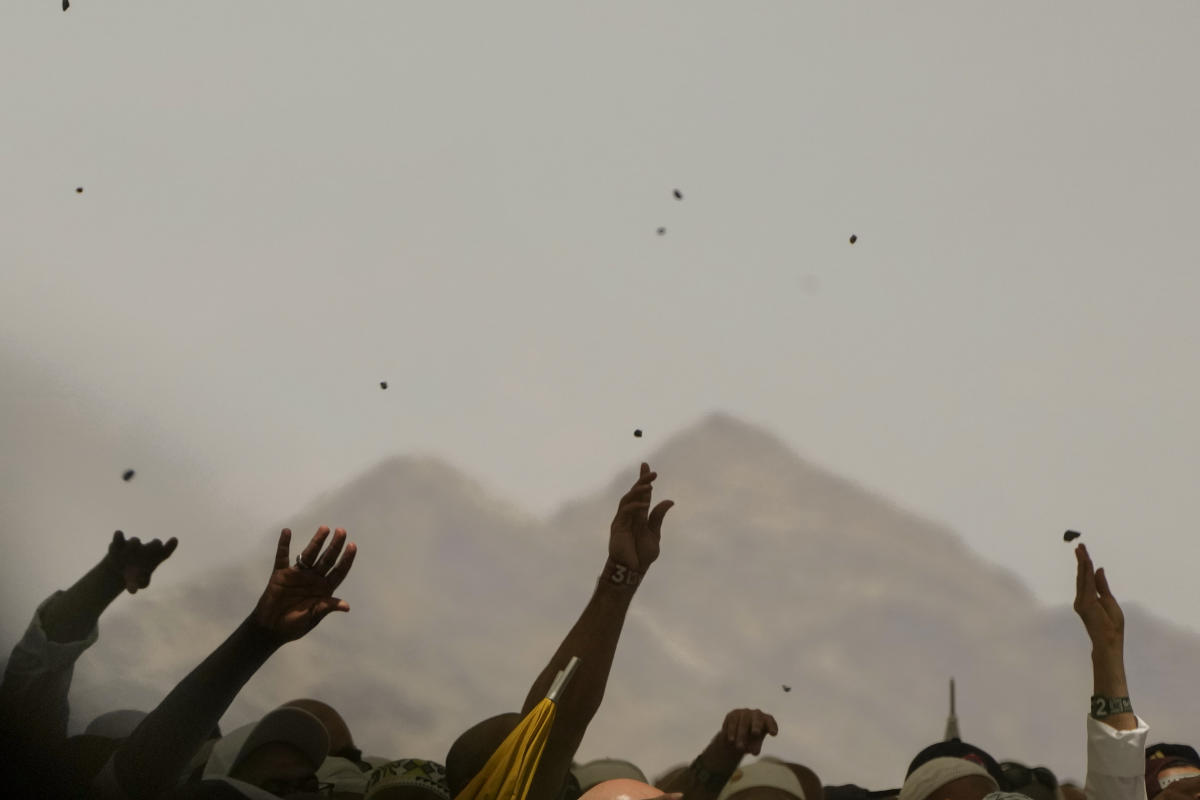As soon as a year, Muslim pilgrims streaming into Saudi Arabia join in a series of spiritual routines and acts of praise as they carry out the Hajj, among the pillars of Islam. As they meet a spiritual commitment, they immerse themselves in what can be a spiritual experience of a life time for them and an opportunity to look for God’s forgiveness and the erasure of previous sins.
Here’s a take a look at the expedition and its significance to Muslims.
WHAT IS HAJJ?
Hajj is the yearly Islamic expedition to Capital in Saudi Arabia that is needed as soon as in a life time of every Muslim who can manage it and is physically able to make it. Some Muslims make the journey more than as soon as.
Hajj is among the 5 Pillars of Islam, in addition to the occupation of faith, prayer, almsgiving and fasting.
WHEN IS HAJJ?
The Hajj takes place as soon as a year throughout the Islamic lunar month of Dhul-Hijja, the 12th and last month of the Islamic fiscal year. This year, Hajj will occur this month.
WHAT’S THE SIGNIFICANCE OF HAJJ TO MUSLIMS?
For pilgrims, carrying out Hajj satisfies a spiritual commitment, however it’s likewise a deeply spiritual experience of a life time for lots of. It’s viewed as an opportunity to look for God’s forgiveness for previous sins, to grow closer to God and to stroll in the steps of prophets.
Communally, Hajj joins Muslims of varied races, ethnic cultures, languages and financial classes from around the globe in carrying out spiritual routines and acts of worshipping God at the very same time and location. That leaves lots of feeling a sense of unity, connection, humbleness and equality. Pilgrims likewise appear with their own individual appeals, desires and experiences.
Numerous pilgrims bring with them prayer demands from friends and family that they wish to be stated on their behalf.
Some invest years hoping and hoping to one day carry out Hajj or conserving up cash and awaiting an authorization to start the journey.
In 2019, almost 2.5 million Muslims carried out Hajj before the coronavirus pandemic interrupted spiritual and other events the world over and took its toll on the Islamic expedition. In 2015’s Hajj was the very first to be held without COVID-19 constraints considering that the start of the pandemic in 2020.
Ahead of the journey, preparations might consist of packaging different fundamentals for the physically requiring journey, looking for ideas from those who’ve carried out the expedition in the past, participating in lectures or taking in other academic product on how to effectively carry out a series of Hajj routines in addition to spiritually preparing oneself.
Sometimes, pilgrims brave extreme heat or other difficult conditions throughout the expedition.
WHAT ARE A FEW OF THE ROUTINES THAT PILGRIMS PERFORM?
Pilgrims make the intent to carry out Hajj and they go into a state of “ihram.” Remaining in ihram consists of following particular guidelines and restrictions. For example, males are not to use routine stitched or sewed clothing that surround the body, such as t-shirts, throughout ihram; there are basic ihram fabric garments for males rather. Scholars state the intent is to dispose of high-ends and vanity, shed worldly status signs and immerse the pilgrim in humbleness and dedication to God.
A spiritual emphasize of Hajj for lots of is the standing on the plain of Arafat, where pilgrims applaud God, advocate forgiveness and make supplications.
Other routines consist of carrying out “tawaf,” circumambulating, or circling around the Kaaba in Capital counterclockwise 7 times.
Muslims do not praise the Kaaba, a cube-shaped structure that they think about the metaphorical home of God; it’s the centerpiece towards which devout Muslims deal with throughout their day-to-day prayers from throughout the world.
Pilgrims likewise trace the course of Hagar, or Hajar, the spouse of Prophet Ibrahim, Abraham to Jews and Christians, who Muslims think ran in between 2 hills 7 times looking for water for her child.
To name a few routines, pilgrims toss pebbles in a symbolic stoning of the devil.
WHAT IS EID AL-ADHA?
Eid al-Adha, or the “Banquet of Sacrifice,” is the Islamic vacation that starts on the 10th day of the Islamic lunar month of Dhul-Hijja, throughout Hajj.
Commemorated by Muslims around the globe, Eid al-Adha marks Prophet Ibrahim’s test of faith and his determination to compromise his child as an act of submission to God. Throughout the joyful vacation, Muslims massacre sheep or livestock and disperse some meat to the bad.
___
Associated Press religious beliefs protection gets assistance through the AP’s cooperation with The Discussion United States, with financing from Lilly Endowment Inc. The AP is exclusively accountable for this material.
